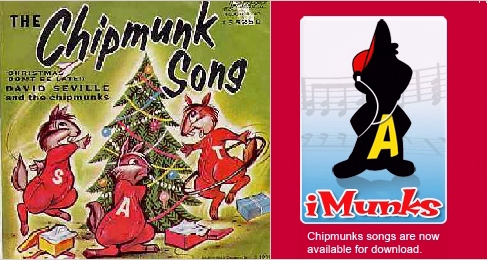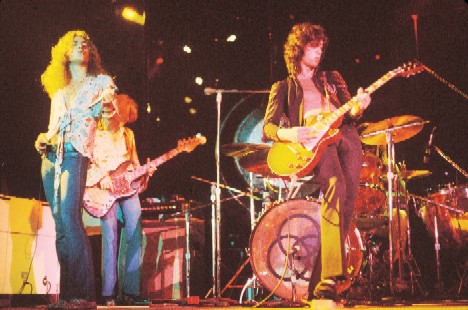Real-life miracles were the subject of Van Jones' keynote address at the Craigslist Foundation's "Nonprofit Boot Camp" last year.
He amused and inspired his audience with the story of his early days at the Ella Baker Center for Human Rights.
There's probably at least one person, and maybe more than one, who feels like their little not-for-profit just may not make it.
There may be somebody that feels like their cause is too marginal, their constituency is too desperate, their dreams are too big, their knowledge base is too small, and they just don't know if they're going to be able to pull this one off. If you're that person, I want to tell you a little bit about my story, my secret rules for success if you're doing tough things, and to remind you how important it is that you stick this out.
Ten years ago, all I had with my co-founder was a $10,000 grant and a scribble in my notebook, and we had a dream. We wanted to do something about police brutality. We wanted to do something about kids suffering in prison. We wanted to do something about the level of violence that was going on in our community. All we had was each other and that idea.
The very first champion that we got — the first person who was on our side, the chair of our advisory board who was our hero — told us "Frankly, man, you will never raise enough money to cover your own salary on this. I think you're great, I like what you're doing, but you will never raise enough money to actually have a full staff. But I like you, I like what you're doing, and I'm willing to lend my name." And that was our most enthusiastic supporter!
Eleven years later, we have a national organization. We have 24 people on staff, we occupy a two-story building, and we've won international awards and recognition for our human rights effort. We've stopped jails from being built, and we've been able to make a difference. In just ten years. I want you to know that looking back on it, you know what it looks like? It just looks like a series of miracles. Just miracle after miracle after miracle after miracle.
The only way we were able to get to those miracles was that we believed in what we were doing. When we first started out, we had a closet in the back of the Lawyer's Committee for Civil Rights. When I say closet, I'm not joking. It was literally a closet, that we took the shelves out of, wedged in a desk from my house, moved the tiles, dropped down wires so we could plug things in... That was our office for three years.
I'm thankful to Eva Patterson from the Lawyer's Committee for Civil Rights for giving us that opportunity. We took that closet and a Macintosh SE-30 from my house and our $10,000, and we started announcing that we had a hotline for survivors of police brutality and police misconduct. I think the first week we got one phone call. The second week we got two or three. Within about two months, we were getting three to four phone calls a day from people in the community who had no place else to turn... We were young lawyers and they were calling on us, and we were doing the best that we could.
But we were spending down that little $10,000 very quickly. We got to the place where we literally didn't have any more money. Diana and I looked at each other and we said, "You know what? We'll go on unemployment. We'll do whatever we have to do. We cannot let these people down."
I got on KPFA radio. I said "My name is Van Jones, and I'm working with Bay Area Police Watch. We're running into some trouble right now, but we want you to know, keep calling us. We're going to have to reduce our hours, but we're going to stick in there." The day before we spent our last dime — literally — we got a letter in the mail. An anonymous donation of $50,000.
"Hey! We might be able to keep going!" We took that $50,000, and we decided, you know what? We're going to go after the worst police officer in the Bay Area, a man named Mark Andaya. He had 27 formal complaints against him for racism and brutality. Remember this case? There were five lawsuits against him, and he was still on the police force. We took that money and launched a campaign to get him removed from the San Francisco police department.
Keeping On
We went through hell. We went through three hearings, we went through ups and downs, but at the end of that summer, the San Francisco police department fired Mark Andaya. It was a huge breakthrough. Suddenly we went from being these kids in the closet to being the people who'd really gotten something done in the community. And, we were broke again! Because we forgot to write grants. We're just fighting, just out there, just broke and ignorant — but passionate!
But we'd already had two miracles. We were still there, and we'd gotten this guy who had killed two people out of our community. There was an African-American woman at a prestigious local foundation who'd listened to us on the radio, had seen us on TV, had heard about what we were trying to do. I'd sent her a letter letting her know that we'd like to apply for a grant, but we didn't get a chance to, we'd missed the deadline, and please, please... "Mercy?"
This woman said "You know, I've been working at this foundation for a long time, and I've been waiting for someone to come out of the community, out of the neighborhood, who was really willing to do what it takes to make a difference. I don't have any more discretionary money. But I do have the $40,000 that we've always given to the symphony... And we're going to give it to you."
Miracles.
Now, she no longer works there. But she is well taken care of at another foundation...
We just kept on, and kept on, and kept on. If at any moment we had gotten too rational, if at any moment we'd actually done the math on how many foundations are committed to this thing and that thing, we wouldn't be here at all. You have a dream inside yourself, and it's an impossible dream. That's why the creator gave it to your crazy ass. If it was easy, She'd have given it to somebody else.
So let's talk about your impossible dream. You need some miracles. Good luck with that. But I can give you, as a 10-year veteran, my five counter-intuitive and probably immoral success secrets.
1. Self promote
2. Steal
3. Don't Lie
4. Hate your enemies, but love your rivals.
5. Do less.
Number One, Self Promotion. People say, "Van, you're a shameless self-promoter. We're disgusted with your shameless self-promotion!" And I say, "
Au contraire, my friend. I am not a shameless self-promoter. I am a
proud self promoter."
Because I'm proud of the work we're doing. I'm proud of the people on our team. I'm proud of the fights we take on. I'm proud there are still people coming out of law school who are willing to take on these crazy crusades. If I don't tell the story, if I don't share the victory, if I don't share the lessons — who will?
We have a simple theory about how we built this organization, and the only thing it requires is you've got to be willing. We call it the three-M conversion: Mobilization, Media, Money. If you're serious about scaling an organization that's small, with a marginal constituency, doing very difficult stuff, you've got to mobilize. You've got to do something! You've got to take on a fight, you've got to help somebody. You've got to get something done. But too many of us stop there, and then we wonder why the support that we need doesn't come.
We get bitter, and we get angry, and we look at the group over there that has two more dollars than we do, and we start making them the enemy, and start this whole competitive thing, and start in-fighting, and it just depresses everybody. Then some poor intern comes to work for you. They see all this drama and all this crazy stuff, and they say "I was just trying to help the poor! I didn't know I was joining an armed faction!"
So let's just de-mystify this whole thing. Do good stuff — mobilize resources, do something — and then, media. Write a press release, think about how to get some coverage. A lot of times, people don't want to cover our stuff? That's fine. Take the photo your damn self! Video cameras are small and cheap. Record your meeting, interview your people... Document your passion.
Document the people that you've helped. Document what you're doing so you can show it to somebody who wasn't there. That's a critical step, and we forget, don't we? We get so passionate about, "The meeting's going to be at 4:00, we've got to have the kids and the pizza..." When we get finished, we're so tired we go home... And there's not one single photograph.
You might've served 10,000 people and don't have one photograph, while the person next door served 20, and has a glossy manual. And you know who you're mad at? Them!
You could've had a glossy manual... But you're mad at them, and now we've got drama.
Document, and then take that documentation to people who have money.
People say, "Aw, I don't want to deal with the fund-raising. It's not about the money to me." Obviously it's not about the money for you, you're working for a non-profit! But people who have means and who have discretionary income and who have different types of financial instruments
want to be helpful, and they want to be engaged — but they don't live in your neighborhood! By definition, they don't. They need some help understanding the situation. That's the media part, the documentation.
You have to get as passionate about talking to the people with as you are talking to the people without. Because we need each other, and you're the bridge person. If you were just desperate and needing of services and help, you wouldn't be working at a not-for-profit. If you were a gazillionaire, you probably also wouldn't be working at a non-profit. So you are the person whose job it is to bring the haves and the have-nots together. And you have to be passionate about that. Yeah, somebody will say "You self promote! You're self-promoting!" Fine, and proudly so! Get that out of your mind as a barrier, and look at the service you can provide by documenting your work.
Number Two, Steal. Steal! I don't mean steal money. Steal ideas! Talk to other people who don't work on your project. If you go to New York to see your friends or your parents, look up the other groups working in a similar area and say hello. If you can't meet with the executive director, that's good, because if the organization is more than five years old the executive director has no idea what's going on anyways.
Talk to the program officer, the deputy director, the receptionist — and steal ideas. And grab onto people that you stole the ideas from. If you go overseas, make sure to visit some of the non-governmental organizations in other countries. It's amazing how many problems have already been solved that you're still stewing in and suffering through.
Our first two years, 100% of all of the paperwork we had for checking in people and interviewing them we'd stolen from a similar project in Los Angeles. I went down there, I'd knocked on their door, I said hello, I told them what we were trying to do... They were very friendly, and said, "This is our paperwork," and I said "Thank you!" I got a Bic pen — remember, I told you we were broke? — and wrote on the top of it, "Bay Area Police Watch." And then we photocopied that thing for two years!
So you've got to be willing to steal. And people love it! People will brag about it, saying "Well you know, we're now the thought leaders in the field. Our model is being replicated." So it's good for them. So I'm not saying anything immoral yet.
Number Three, Don't Lie. This is for real. There is something about the relationship between the not-for-profit sector, the government, the foundations, and the donors that creates a massive incentive to lie — flagrantly, and often.
And it's not just a one-sided thing. The relationship between not-for-profits and foundations is like the relationship between teenagers and parents. You don't really want to tell them everything that's going on, and they don't really want to know. So there's this dance of deceit, shall we say.
"What'd you do this weekend?"
"Oh... Studied! With my friends."
And the parents say "Good! So glad to hear that!" Because they don't want to know. And so what do you say?
"How did the year go?"
"We had success after success! All goals were met, and a good time was had by all."
And what was there left to say? "Good! Good!" They don't want to know about the youth in your program that cussed you out and set the building on fire. They don't want to know that you hired somebody once again who was a complete idiot. They don't want to know, and you don't want to tell them, and therefore we all stay very ignorant. Then the actual innovation curve has flattened out, because nobody's telling the truth about what we're going through any more. We're all self-deceiving and trying to make it look good.
At the Ella Baker Center, we adopted a reporting form that freaked out our board and advisors. It was very simple: highlights, low lights, and lessons learned. We created a discipline in the organization that we would report out the bad stuff. First of all, everybody knows the bad stuff anyway, because the person you fired is talking right now, so it's not like it's not out there. But did you learn anything?
Program officers at foundations, donors, and philanthropists are just inundated with lying, false crap. And they know they're being lied to. If you took all your annual reports and just read them end to end, you'd have to conclude that we're now living in a socialist paradise. Everything's going well, people are being served, and all the children are happy. And then you look at any newspaper, and it's very clear that we might be fudging a bit.
So my experience has been that donors and program officers love to actually get the truth. They don't punish you for it if you learned something. I think if all of us started to confess a little bit more, we would learn a little bit faster.
Number Four: Hate Your Enemies, if you must, but love your rivals — and know the difference. Your enemies are people like Nazis, okay? Your enemies are people who want to do you bodily harm, who hate you, and who are actively plotting your demise, with weapons. Just about everybody else that you don't get along with is probably a rival. They run an organization and you run an organization, or they have a department and you have a department. Or they have a cubicle, and you have a cubicle. And you just don't get along. You don't see eye to eye, there's some jealousy, you have different communication patterns. Their mom was this way, your dad was that way — you're working it out.
But we turn those minor differences into adversarial wars. It's fine to hate your enemies if you must. Jesus, Gandhi, other people would argue with you, but if you insist, fine. Hate your enemies. But most of the people you see every day are not your enemy. I've got emotional scars and damage from being in this work, and I've never even met a Republican! Even with people who fundamentally agree with everything I think, we just fight and hurt each other and say mean things, and think mean thoughts. All the time! That's called the movement. That's called the progressive community, right?
I want to make the case that we should actually love our rivals, and we should develop a discipline about bragging on our rivals. One group doesn't like us very much at all. I started talking about them first at every funder meeting. "I'm so happy to be here. Before I tell you about our work, have you heard about X group? They're doing extraordinary work. They did this last year, they did this this year. If you don't know about them, I want to make sure you know about them before the meeting's over. Now let me tell you about what we're doing..."
I developed the discipline in my own mind that I was going to brag on my rivals. I was going to love them, I was going to learn from them. I was going to try to figure out what it was that I could do differently in the relationship. I want to report that it has made no difference, at all, in the way they treat me. But it's made a tremendous difference in the way that other people view our organization and the way that we view ourselves. We're lighter. Love your rivals.
Number Five, Do Less. When I first came into this movement, we named the organization after a woman named Ella Baker, a civil rights heroine from the sixties. Ella Baker said many, many wise things. One of the things that caught on was something she said in a moment of frustration. Some civil rights workers had been murdered — two Jews and a black — and while they were trying to find these civil rights workers, they kept coming up with body after body after body of black men that had been lynched and drowned down through the ages. The media kept saying, "Well, that's interesting but what about the two white kids?" She got frustrated, and she said in that moment of frustration — and it didn't represent her life, but she said "We who believe in freedom cannot rest. We who believe in freedom cannot rest until all mothers' children are honored."
It's rung down through the decades since she said that. I just drank the Kool-Aid on that. "We who believe in freedom cannot rest. We cannot rest. We cannot rest. We cannot..." And I hurt myself. Physically, emotionally, psychologically, spiritually. I really hurt myself.
July 17, 2000, I had a complete emotional, physical, psychological breakdown. I literally could not get out of bed. I'd gone for years without — I would sleep with my clothes on, and the lights on, books all around me on the bed. I never took a vacation. For years it never occurred to me to take a vacation. Something just popped in my brain. It was almost audible. I was in deep trouble.
I'd been in all these coalition meetings, and it occurred to me that over the past couple years, in every meeting I'd been surrounded by idiots. I had to deal with them, and point out their flaws, and stop them from wreaking havoc, and... I was burning out, and I didn't know it. I had to take about two years of counseling, therapy, learning to go to the gym — things I'd just never done — just to be able to get back to doing this work.
My dad was an alcoholic, so I'd said, "Well I'm not going to do that," but then I was into this workaholism thing. I pulled out of it, and when I came back I saw that it was just everywhere. So what I want to say to you, very clearly, is that you have emotional needs. You have physical needs. You need to get them taken care of outside of this work.
You need to have something outside of this work where you go for re-charging, where you talk to people who don't do this kind of work, so you can keep it in perspective. So when you go into those board meetings and you go into those coalition things, you're coming with something. We who believe in freedom have to rest. We have to rest.
Who We Are
Our country is in a difficult situation now. We're facing difficult days. You're the people who are the reserve strength of the country. You're this nascent, pro-democracy movement trying to revive the best in the United States. It's important that you see yourselves in that way.
We tend in our movement to forget who we are. The legacy that we're carrying out, the shoes that we're standing in, the call that we're answering. Dr. Martin Luther King never gave a speech called "I Have...A Complaint." That wasn't his speech. The brother had a dream. And you have dreams. You have big, beautiful dreams. You will not be able to meet them alone. You need friends, you need solidarity, you need partnership, you need a movement.
But in a difficult period like the one that we're in right now, that's when there's opportunities for she-roes and heroes to step forward. People remember Roosevelt and Churchill and those guys because Hitler made it an awful, hard decade for them, and they rose to that. It's the same with every other hero and she-ro. This is a time for heroes. This is a time for she-ros. I want you to be the people who in the difficult times stood up for the best in this country, who said "We are willing to say that we'll defend America's freedoms." Who will say that the people who want to tear up the Constitution at the first opportunity are not the patriots. The patriots are the people who are willing to defend America's freedoms, the people who are willing to defend people's freedom to marry who they want to, and divorce who they want to.
We're the people who are willing to say America should be number one in the world. But not in war. Not in pollution. Not in incarceration rates. America should be number one in the world in green and clean technology, in solar power, in bio-diesel, in sharing those beautiful things with the world. We should be number one in showing how a rainbow nation — multi-colored, multi-class, multi-hued, multi-language — can come together and fix real problems, and show a rainbow planet how it's done. That's who we should be.
I believe if we do our work in that spirit, with that knowledge, with that commitment, we will build the kind of pro-democracy movement that will get past left and right, past black and white and yellow and every other color, and get back down to the very basics of who we are as people. People who believe, people who stand for something.
People who understand that at the end of the day, when it's all said and done, our love, our hope, our faith, and our commitment, is stronger than a bomb from anybody.
See Also:20 Wildest Reactions to Obama's Victory
The QuestionAuthority ProposalReverend Billy Wants You To Stop Shopping
Is The Net Good For Writers
When Lego Goes To War



